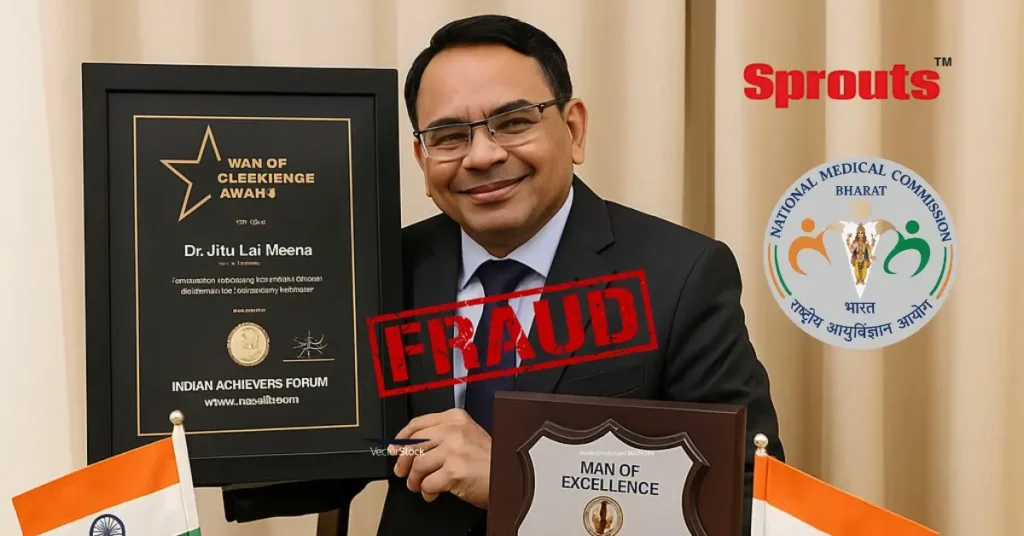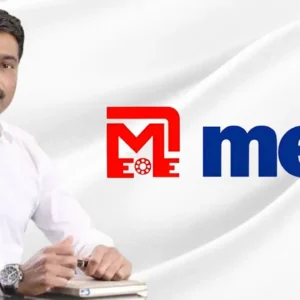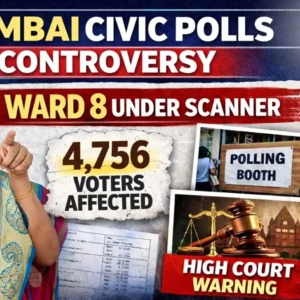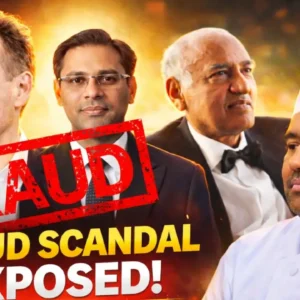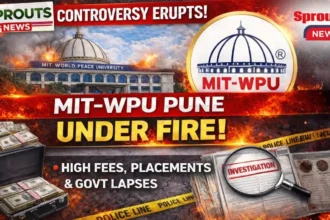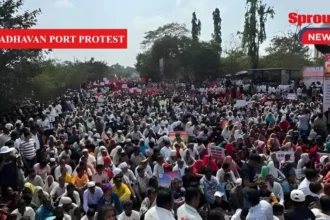CBI Cracks Down on NMC Bribery Network
• Medical Colleges Paid for Fake Clean Chits
• Top Officials, Doctors Named in Mega Scam
• Inspections Leaked, Dummy Faculty Deployed
Raju Vernekar
Sprouts News Exclusive
The Central Bureau of Investigation (CBI) has booked 36 people, including officials of the National Medical Commission (NMC) and the Union Ministry for Health and Family Welfare, on charges of collecting bribe to give favorable reports to the medical colleges not maintaining stipulated standards.
Contents
- CBI Cracks Down on NMC Bribery Network
- • Medical Colleges Paid for Fake Clean Chits
- • Top Officials, Doctors Named in Mega Scam
- • Inspections Leaked, Dummy Faculty Deployed
- Massive Corruption Unearthed in Medical Education Oversight
- Medical Colleges Named in the Scam: Gujarat, MP, UP, Bihar on the Radar
- Bribe for Clearance: Rs 50 Lakh, Dummy Faculties, and Havala Routes
- Pattern of Corruption: Advance Leaks and Dummy Patients
- Also Read: ₹7.85 Cr Export Fraud: FIR Filed in Mumbai Pantnagar Sugar Scam Against Elite Green Pvt Ltd.
- Regulatory Crisis in Medical Education: Experts Call for Structural Reforms
Massive Corruption Unearthed in Medical Education Oversight
In a sweeping action, the Central Bureau of Investigation (CBI) has booked 36 individuals—comprising senior officials from the National Medical Commission (NMC) and the Union Ministry of Health and Family Welfare—for allegedly accepting bribes in exchange for favorable inspection reports to medical colleges that failed to meet regulatory standards.
The CBI’s FIR (No. RC 2182025A0014), filed on June 30, 2025, highlights a deeply entrenched network of corruption in India’s medical education system. The accused are charged under Sections 61(2) and 173 of the Bharatiya Nyaya Sanhita (BNS) 2023, and Sections 7, 8, 9, 10, and 12 of the Prevention of Corruption Act, 1988 (amended in 2018).
The Sprouts News Investigation Team (SIT) found that these officials had not only shielded under-equipped colleges but also leaked confidential information in advance—compromising the integrity of the inspection process.
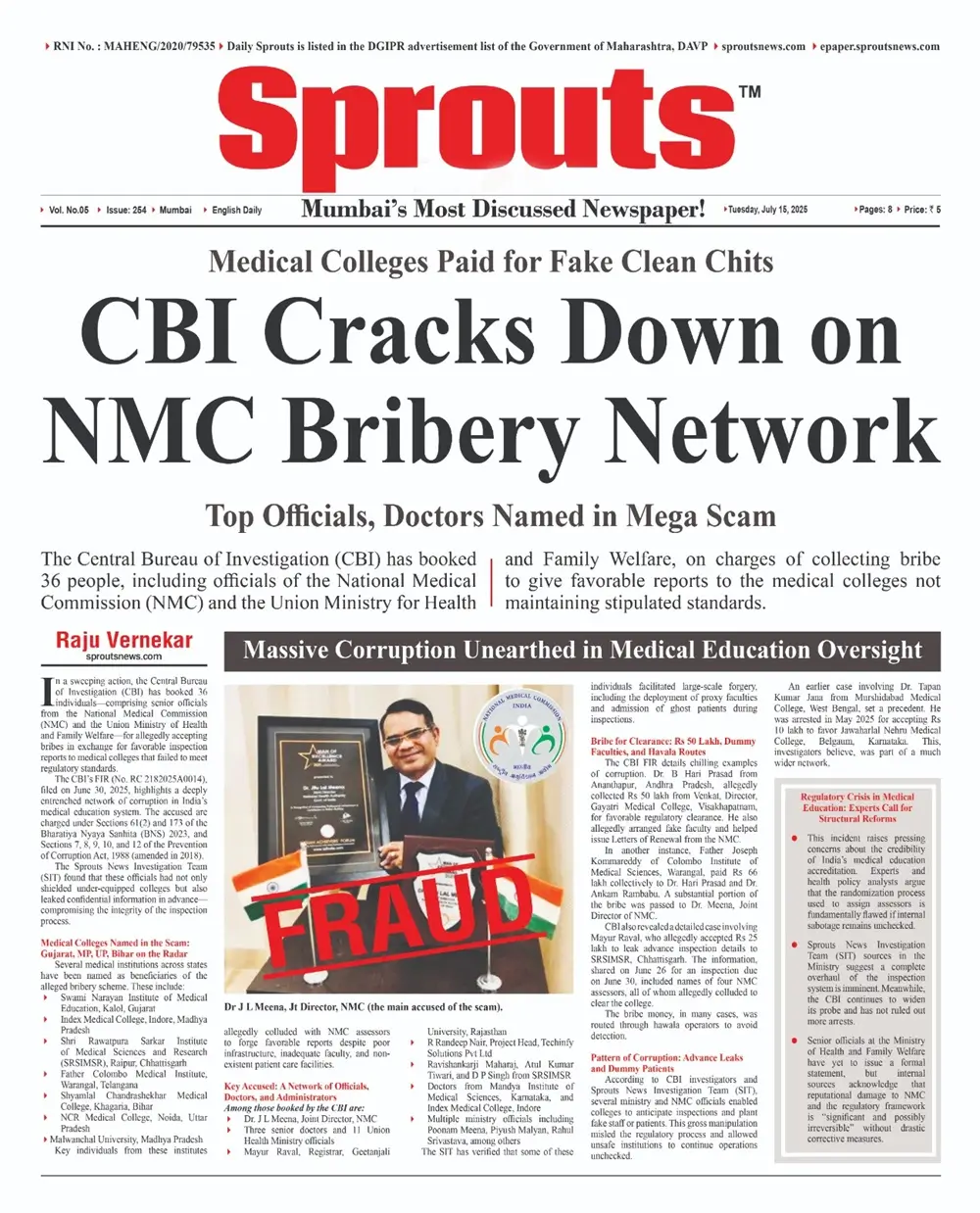
Medical Colleges Named in the Scam: Gujarat, MP, UP, Bihar on the Radar
Several medical institutions across states have been named as beneficiaries of the alleged bribery scheme. These include:
•Swami Narayan Institute of Medical Education, Kalol, Gujarat
•Index Medical College, Indore, Madhya Pradesh
•Shri Rawatpura Sarkar Institute of Medical Sciences and Research (SRSIMSR), Raipur, Chhattisgarh
•Father Colombo Medical Institute, Warangal, Telangana
•Shyamlal Chandrashekhar Medical College, Khagaria, Bihar
•NCR Medical College, Noida, Uttar Pradesh
•Malwanchal University, Madhya Pradesh
Key individuals from these institutes allegedly colluded with NMC assessors to forge favorable reports despite poor infrastructure, inadequate faculty, and non-existent patient care facilities.
Key Accused: A Network of Officials, Doctors, and Administrators
Among those booked by the CBI are:
•Dr. J L Meena, Joint Director, NMC
•Three senior doctors and 11 Union Health Ministry officials
•Mayur Raval, Registrar, Geetanjali University, Rajasthan
•R Randeep Nair, Project Head, Techinfy Solutions Pvt Ltd
•Ravishankarji Maharaj, Atul Kumar Tiwari, and D P Singh from SRSIMSR
•Doctors from Mandya Institute of Medical Sciences, Karnataka, and Index Medical College, Indore
•Multiple ministry officials including Poonam Meena, Piyush Malyan, Rahul Srivastava, among others
The SIT has verified that some of these individuals facilitated large-scale forgery, including the deployment of proxy faculties and admission of ghost patients during inspections.
Bribe for Clearance: Rs 50 Lakh, Dummy Faculties, and Havala Routes
The CBI FIR details chilling examples of corruption. Dr. B Hari Prasad from Ananthapur, Andhra Pradesh, allegedly collected Rs 50 lakh from Venkat, Director, Gayatri Medical College, Visakhapatnam, for favorable regulatory clearance. He also allegedly arranged fake faculty and helped issue Letters of Renewal from the NMC.
In another instance, Father Joseph Kommareddy of Colombo Institute of Medical Sciences, Warangal, paid Rs 66 lakh collectively to Dr. Hari Prasad and Dr. Ankam Rambabu. A substantial portion of the bribe was passed to Dr. Meena, Joint Director of NMC.
CBI also revealed a detailed case involving Mayur Raval, who allegedly accepted Rs 25 lakh to leak advance inspection details to SRSIMSR, Chhattisgarh. The information, shared on June 26 for an inspection due on June 30, included names of four NMC assessors, all of whom allegedly colluded to clear the college.
The bribe money, in many cases, was routed through hawala operators to avoid detection.
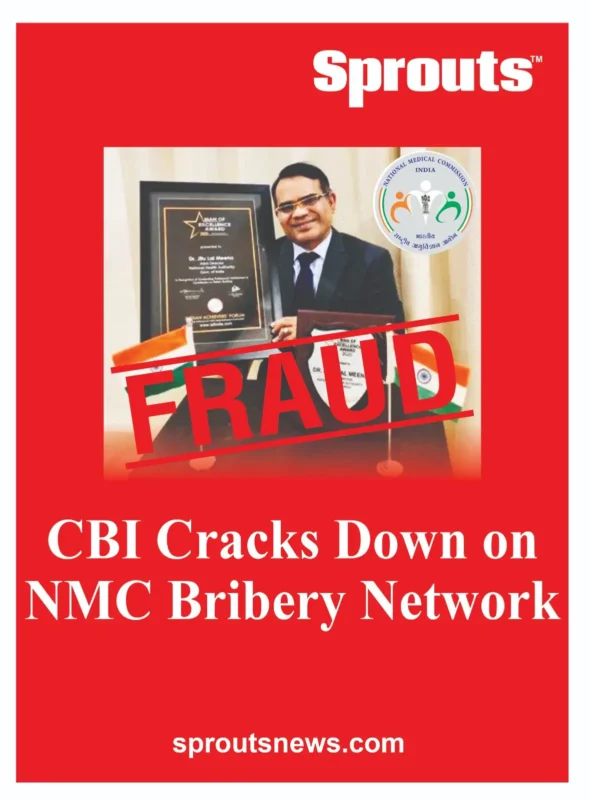
Pattern of Corruption: Advance Leaks and Dummy Patients
According to CBI investigators and Sprouts News Investigation Team (SIT), several ministry and NMC officials enabled colleges to anticipate inspections and plant fake staff or patients. This gross manipulation misled the regulatory process and allowed unsafe institutions to continue operations unchecked.
An earlier case involving Dr. Tapan Kumar Jana from Murshidabad Medical College, West Bengal, set a precedent. He was arrested in May 2025 for accepting Rs 10 lakh to favor Jawaharlal Nehru Medical College, Belgaum, Karnataka. This, investigators believe, was part of a much wider network.
Also Read: ₹7.85 Cr Export Fraud: FIR Filed in Mumbai Pantnagar Sugar Scam Against Elite Green Pvt Ltd.
Regulatory Crisis in Medical Education: Experts Call for Structural Reforms
This incident raises pressing concerns about the credibility of India’s medical education accreditation. Experts and health policy analysts argue that the randomization process used to assign assessors is fundamentally flawed if internal sabotage remains unchecked.
Sprouts News Investigation Team (SIT) sources in the Ministry suggest a complete overhaul of the inspection system is imminent. Meanwhile, the CBI continues to widen its probe and has not ruled out more arrests.
Senior officials at the Ministry of Health and Family Welfare have yet to issue a formal statement, but internal sources acknowledge that reputational damage to NMC and the regulatory framework is “significant and possibly irreversible” without drastic corrective measures.

